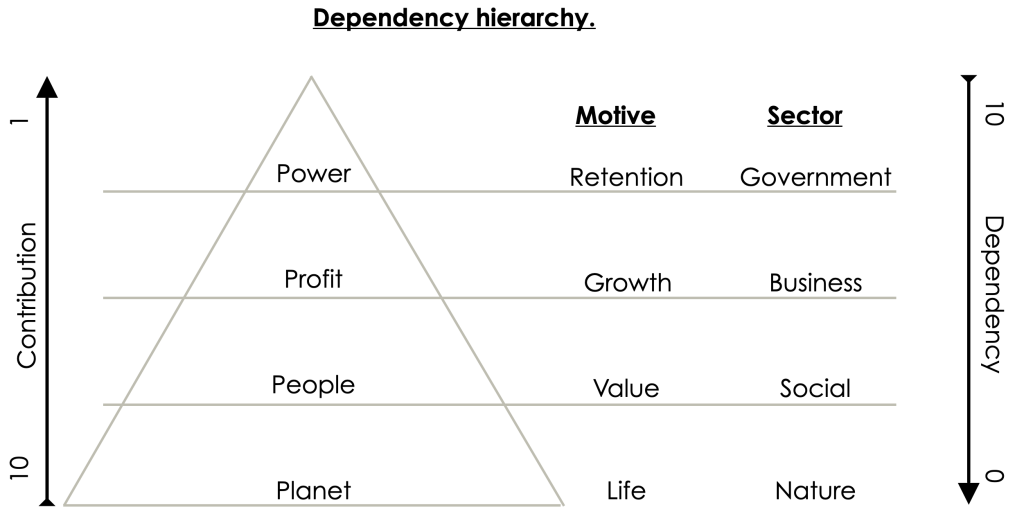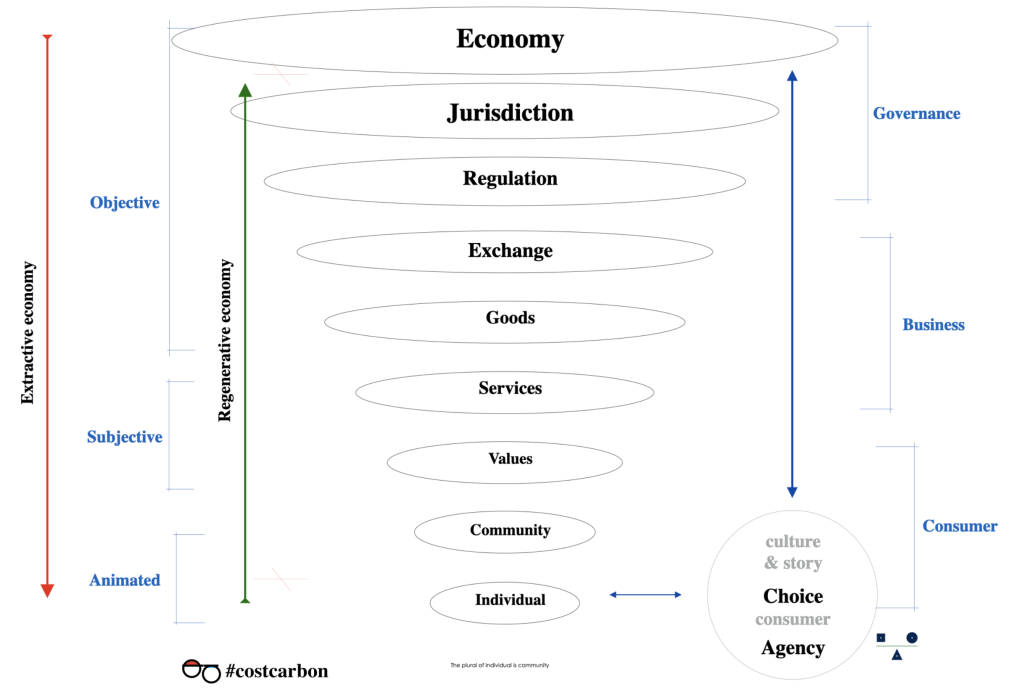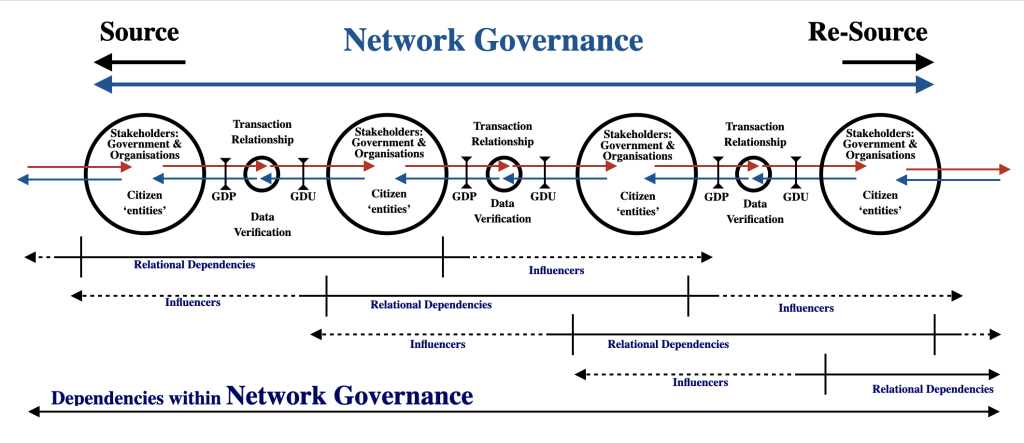Systems approaches, tools, mechanisms and templates will be added progressively. Some underway include:
- The Carbon Thermostat
- The Readiness Indicator Framework
- Network Governance application
- GDP:GDU consumption efficiency calculator
- Emile work book for practical change.

How can a universally coherent system be enabled at the pace and scale necessary to address our grand challenges?
The real hierarchy of dependencies is a first principles approach from the ground upwards. What are the definitions, boundaries and metrics that are needed for a fast, coherent transition? What does the planet depend upon? What do we depend upon?
Increased storms. Bigger floods. Longer droughts. Significant change in climate and weather patterns across the globe will have a dramatic impact on how we all are able to live and prosper on Planet Earth.
The magnitude of the current climate change issues and how humanity can re-tool for the future can be overwhelming. Many people – aware of the need for change and action – are struggling to find a clear and practical way to implement and live the changes that are needed to reduce the rate of climate change.

Change
Change has two parents; imposed from above and initiated from below, in shaping social change.
Imposition from governments, corporations and increasingly natural forces such as warming, fire and floods offer little opportunity for collaborative public engagement or influence.
Initiation from grassroots, social communities and voluntarily adopted new practices, enables change aligned to common motives and shared values. Imbalance between these approaches leads to friction, waste time and effort.
The concept and practice of Network Governance where each and every stakeholder withing supply/value chains abide by the same measurement and reporting framework will remove waste, lower risk and provide predictable and coherent business ecosystem.

A common language offers the opportunity for fresh dialogue, compromise and collaboration.
Definitions:
- Economy; all of human activity across financial, social and environmental domains.
- Stewardship; responsibility as is necessary to restore balance between economy and nature
- Capital; natural, social and financial domains on which economy develops, functions and grows.
- Price; an abstract and objective quantitative metric relating to finance at the moment of exchange.
- Cost; a qualitative and quantitative metric of outcome and impact considered at moment of exchange.
- Value; a qualitative and plural metric unique to the individual and adaptive to the environment.
- Waste; anything that does not add value or that which creates liabilities on natural and social systems.
- Emissions are a waste as is delay and over production, under utilisation and loss of human potential.
- Growth; A naturally occurring phenomenon that must be reflected in economies to find balance.
- Utilisation; a metric of economy that recognises the use and utility of resources in perpetuating cycles.

